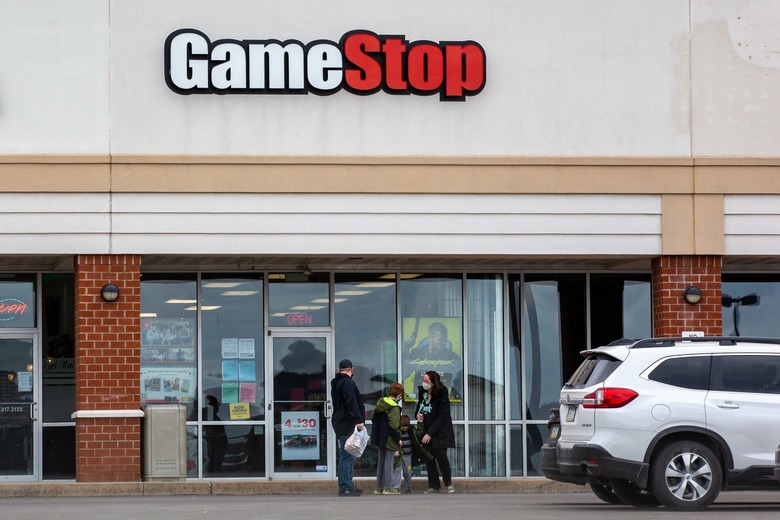The GameStop Saga Exposed Wall Street's Dirty Little Secret
- In just a few days, Redditors managed to drive up GameStop's share price by more than 5,000%.
- The entire saga, which will eventually become a Netflix film, exposed a dirty secret long known to Wall Street insiders: short-sellers have been manipulating the market for their own benefit for decades.
In a series of events that perfectly encapsulate the old adage "truth is stranger than fiction," a popular subreddit last week nearly bankrupted a multi-billion dollar hedge fund in a matter of days. Looking to exploit immense short interest in shares of GameStop, Redditors on r/WallStreeBets mobilized en masse and started buying up GameStop shares at a rapid clip. As demand drove the price up, hedge funds with short positions on the stock were forced to close their positions, which only served to drive shares up even higher.
In about two weeks' time, GameStop shares went from trading at $20 per share to $483 per share. The rise was so quick that the hedge fund Melvin Capital was forced to take a $2.5 billion cash infusion from other hedge funds in order to remain afloat. Of course, the enterprising scheme could only last so long, and shares of GameStop have since fallen back into the realm of normalcy. On Thursday afternoon, GameStop shares were trading in the range of $54.
The entire GameStop saga has been polarizing, to say the least. While established Wall Street folks were quick to categorize the ordeal as blatant market manipulation, Redditors said their actions were no different from what hedge funds have been doing for years. In fact, a lot of people consider what Redditors managed to achieve as giving multi-millionaires a taste of their own medicine.
What's particularly interesting is that many people, even prominent businessmen, have come out to voice their support for the folks on r/WallStreetBets. Billionaire NBA owner Mark Cuban even participated in an Ask Me Anything Q&A (AMA) on the subreddit earlier this week.
"Thanks for changing the game. Thanks for taking on Wall Street," Cuban said.
In a broad sense, Redditors managed to shine a bright light on the somewhat murky practice of shorting stocks. In simple terms, shorting a stock simply means an investment that pays off when the price of a stock goes down. Things can get murky, if not downright illegal when hedge funds with short positions pull strings behind the scenes to force the price of a stock down.
Touching on this point, Rick Smith detailed his own experience when investors took a short position on shares of his own company:
Some short sellers don't just sit back and hope that a stock declines. Instead, they try to force it down. It's Wall Street's open secret: There are a class of short sellers who target companies to destroy value. They operate in the shadows, whisper in the ears of business reporters, file lawsuits, and even call up government regulators — all to bring a stock lower and profit from the decline.
I know this because I've lived it. In 2004, the stock price of my company rose dramatically — but that drew over $1 billion in short positions and led to a highly-coordinated public relations and legal campaign against our company. Within months, press that ignored us began assailing us. We were sued over 100 times, and a federal government investigation was triggered that alarmed both our shareholders and customers causing real damage.
Short sellers nearly destroyed our business, because doing so was lucrative for them. We survived by the skin of our teeth, and that experience showed me the lengths to which short sellers will go to influence the market — not just predict its moves.
It's worth noting that underhanded efforts to lower a company's stock price are incredibly common. You'll often see it with Apple, for instance, when murky and unsourced rumors claim that a new iPhone model isn't selling well or is fraught with technical problems. Tesla is another company that had to contend with an avalanche of misinformation, often conjured up by short-sellers looking to drive Tesla shares down into the ground.
Stories like the Smith's are exactly why many people can't find even an ounce of sympathy for the multi-millionaires who operate billion-dollar hedge funds.
Smith believes that the problem will persist until the SEC takes a more active role in overseeing short-sellers and putting a stop to some of the strategies they use to drive share prices down and make millions in the process.
